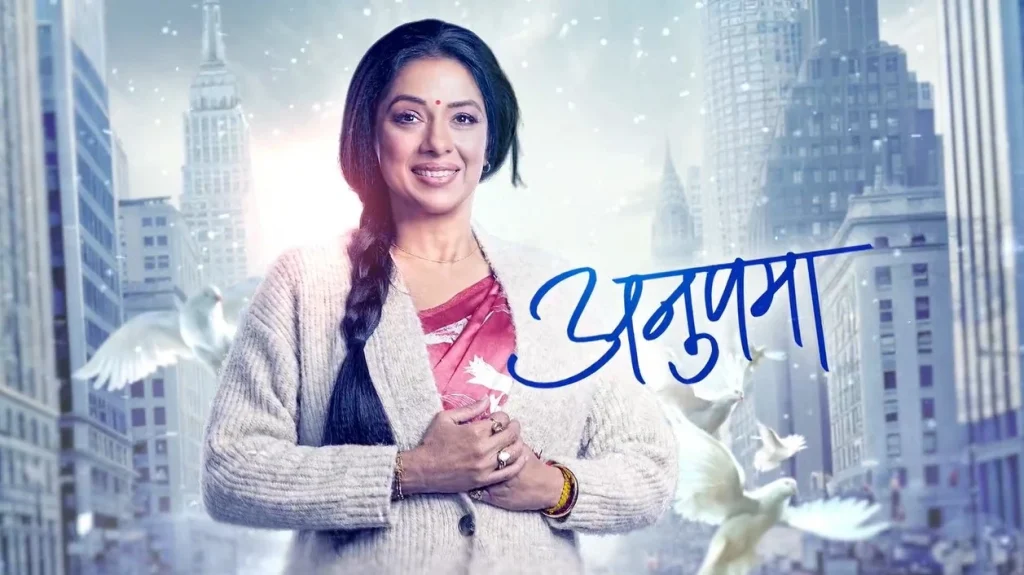Anupama 11th April 2025 Written Episode, Written Update on TellyUpdates.com
Rahi urges Parag to reveal the truth about Gayatri to Prem and Prarthana, stressing that only the truth can heal old wounds. Supported by Anupama, Rahi emphasizes that Prem’s hatred for Parag and Khyati stems from ignorance. Anil confirms Gayatri died due to mental illness and that Khyati married Parag after her passing, not as an intruder. Shocked, Prem begins to see Khyati in a new light, while Anupama praises her strength.
Meanwhile, Aryan feels sidelined and accuses Khyati of disowning him for Prem and Prarthana. Parag agrees Aryan deserves the truth. As family tensions rise, Gautam warns them to tread carefully. Prem apologizes to both Khyati and Aryan, seeking reconciliation.
Elsewhere, Leela panics upon seeing Raghav in the kitchen, but Hasmuk comforts her and encourages Raghav. At the Shah house, family drama unfolds as Pakhi pressures Ishani to marry Raja, leading to accusations and the discovery of a cigarette in Ishani’s bag.
Parag ultimately disowns Khyati, but she receives support from Anupama, Rahi, and Prem—who chooses to leave the house with her, standing firmly by her side.
Precap: Promotion of Baisakhi festival celebration by Star Plus stars.
Update Credit to: H Hasan



3 Comments
🧾 Appeal to Hon’ble Supreme Court of India
Subject: Uniform Action Against Extremist Cultural/Religious Organizations
Respected Chief Justice and Hon’ble Judges,
We, the citizens of India, seek urgent judicial review of several cultural/religious organizations allegedly linked to violence, radicalization, or terrorism.
⚠️ Top Organizations Linked to Extremism (Descending Order):
SIMI – Islamist terror, serial bombings (Banned)
PFI – Political killings, ISIS links (Banned)
Hizbul Mujahideen – Terror in Kashmir (Banned)
ULFA/NSCN – NE insurgency (Banned/Negotiated)
Babbar Khalsa – Khalistani terror (Banned)
Sanatan Sanstha – Explosives, rationalist killings (Legal)
Bajrang Dal – Lynching, anti-minority violence (Legal)
RSS – Radicalization, riots (Gujarat 2002, Delhi 2020) (Legal)
Sri Ram Sene – Mob violence, hate speech (Legal)
Jamaat-e-Islami (J&K) – Separatism (Partially banned)
🙏 Our Prayer:
Investigate all such groups under equal law.
Apply UAPA or constitutional scrutiny based on actions, not ideology.
Ensure justice is not selective or politically shielded.
Terror is terror — in any colour.
We trust the Court to act in the interest of justice, peace, and equality.
Sincerely,
We the People of India
🧭 Why Does South India Have Fewer Cultural Organizations Yet More Civil Behaviour?
1. 🧠 Stronger Focus on Education and Rationalism
States like Kerala, Tamil Nadu, and Karnataka have historically invested in education, social reform, and literacy.
Dravidian movements (especially in Tamil Nadu) challenged caste supremacy and promoted rational thinking over religious dogma.
This reduced the space for mob-led cultural fanaticism.
2. 🧘 Religion as Culture, Not Politics
In South India, temples are cultural and spiritual centers, not political weapons.
Religious identity is personal, not used as a mobilizing force for street violence or elections (as often seen in parts of North India).
Cultural pride exists — but is rooted in language, art, and heritage, not supremacy.
3. ⚖️ Social Reforms Came Early
Social reformers like Periyar (TN), Narayana Guru (Kerala), and Basava (Karnataka) pushed for equality, dignity, and anti-superstition.
This led to more questioning of dogma and less blind obedience to religious leaders or mobs.
4. 🏛️ Weaker Grip of Militant Cultural Groups
Unlike the RSS-Bajrang Dal-VHP nexus dominating North India, South India never fully embraced such militant cultural-nationalist organizations.
Where such outfits exist (e.g., in Karnataka), their influence is limited and challenged.
5. 🤝 Civic Sense and Local Governance
Cities like Bengaluru, Chennai, Kochi, and Hyderabad have better urban engagement, civil discourse, and public service awareness.
This reduces mob culture and increases civic responsibility.
🔚 In Summary:
Fewer mobs, more minds. Fewer militant outfits, more reformers. Less dogma, more dignity.
South had Periyar and Basava who turned reform into policy.
North had Ambedkar and Phule, but not governance to carry their mission forward.
Corruption, caste politics, and weak public education crippled the North’s reform potential, while South advanced with dignity, debate, and discipline.
———————————–
South India shows that civilized society doesn’t need aggressive cultural organizations , it needs education, accountability, and equality.
While South Indian children are protecting nature and forests, North Indian youth are being reduced to mobs dancing on mosques, the tragic impact of so-called cultured cultural organizations.
Take timely action, or the day isn’t far when Hindus face a global ban due to rising religious terrorism.
The irony?
No leader’s child is ever in these mobs , they’re studying peacefully abroad, far from the hate their parents ignite here.